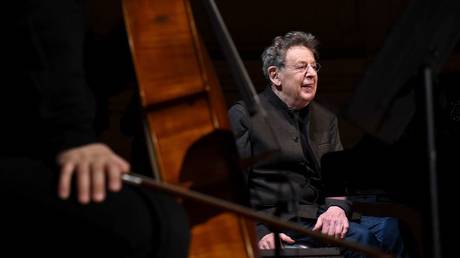American Composer Claims Russian Theater Engaged in 'Piracy'
U.S. composer Philip Glass has alleged that a theater in Crimea has unlawfully utilized his music for a ballet production. For more details, please visit RT.com

The 87-year-old composer, who has won three Golden Globe awards for his movie soundtracks, including for ‘The Truman Show’ and Martin Scorsese’s ‘Kundun,’ voiced his allegations on X (formerly Twitter) on Thursday. According to Glass, the production, which is set to premiere on July 29, features his music and uses his name in its advertising campaign without his express permission.
“No permission for the use of my music in the ballet or the use of my name in the advertising and promotion of the ballet was ever requested of me or given by me. The use of my music and the use of my name without my consent... is an act of piracy,” Glass declared, warning that he would make his “vehement objection to it known” if the theater proceeded with the premiere.
The Sevastopol theater on Friday denied Glass' allegations, emphasizing that it “operates within the framework of Russian legislation” regarding copyright and intellectual property, and “does not allow illegal use of copyrights.”
The ballet’s main choreographer, British dancer Jonah Cook, had previously told local media that his production incorporates a variety of musical compositions, similar to many modern-day ballets. These compositions include string music by Philip Glass and Icelandic composer Hildur Gudnadottir, works by British musician Damon Albarn and Russian composer Tatyana Shatkovskaya, as well as some themes from traditional Irish music.
Modern-day dance companies often mix music for their productions and are required to obtain a license to use compositions for performance. Under Russian law, a contract for the use of music can be signed directly with the composer or with an entity that collectively manages copyrights, such as the Russian Authors’ Society (RAO). This organization acts as an intermediary between intellectual property owners and performance companies, ensuring that artists are compensated for the use of their works.
According to the RAO’s website, it represents over 26,000 Russian and 2 million foreign artists and copyright holders. Glass has long been registered with the RAO, and several of his works are listed on its website.
Olivia Brown contributed to this report for TROIB News












